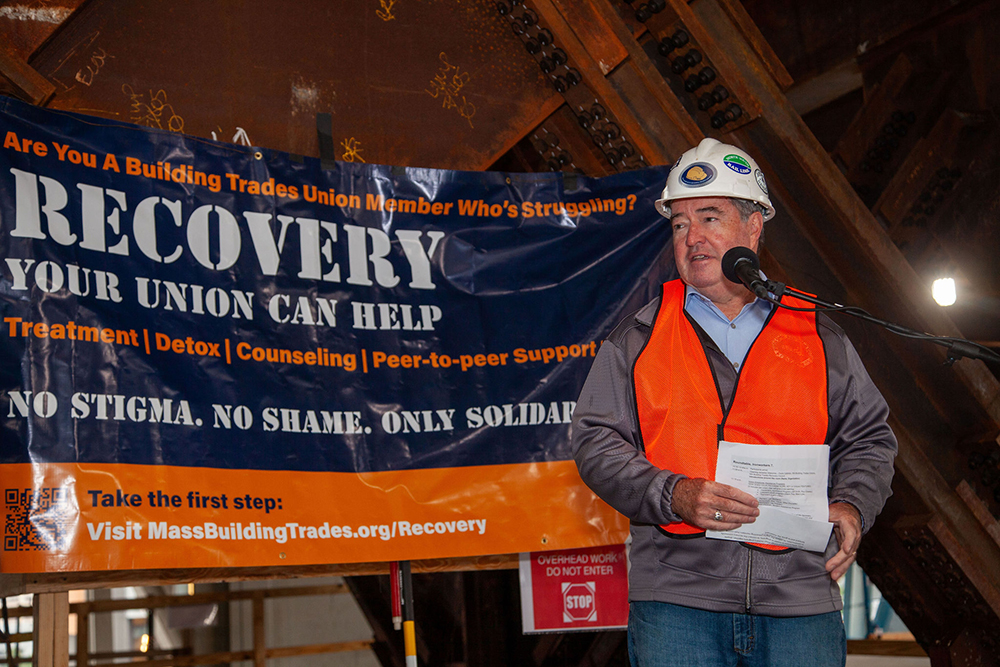U.S. Department of Labor and OSHA joined the Massachusetts Building Trades Recovery Council to strategize mental health support in the workplace

 Boston, MA Representatives from the U.S. Department of Labor and the Occupational Safety and Health Administration (OSHA) joined the Massachusetts Building Trades Recovery Council to discuss innovative methods to create supportive work environments for people with substance use disorder and mental health conditions in the trades.
Boston, MA Representatives from the U.S. Department of Labor and the Occupational Safety and Health Administration (OSHA) joined the Massachusetts Building Trades Recovery Council to discuss innovative methods to create supportive work environments for people with substance use disorder and mental health conditions in the trades.
The Massachusetts Building Trades Recovery Council has been a leader in the effort to support recovery efforts for workers with substance use disorder by promoting the recovery benefits and programs within each affiliate trade. Members of the 62 local unions and district councils in MBTU have access to recovery support 24/7, thanks to MBTU Recovery. Any union member can contact a peer at any time to ask for help, learn about local resources such as recovery meetings at union halls, explore treatment options, and find much-needed personal connections. Support is available to dependents of union members as well.

During the roundtable, attendees included:
• John Towle: deputy chief of staff, U.S. Department of Labor
• Doug Parker: assistant secretary, Occupational Safety and Health Administration
• Taryn Williams: assistant secretary, Office of Disability Employment Policy
• Ali Khawar: principal deputy assistant secretary, Employee Benefits Security Administration
• Frank Callahan, president, Massachusetts Building Trades Unions
• Vincent Coyle, president of Ironworkers Local 7
• Internal Employee Assistance Program leaders
• External Employee Assistance Program leaders with Peer to Peer programming in their local union

Ironworkers Local 7 and MA Building Trades are proud to have collaborated on an event aimed at highlighting the value and importance of union-sponsored peer-led recovery efforts within the building trades, and lead the way in innovative and effective recovery programming and support.
Atlantic Property Management expands facilities maintenance platform: Assigned two new facility management contracts in RI


New Quonset pier supports small businesses and economic growth - by Steven J. King

Tenant Estoppel certificates: Navigating risks, responses and leverage - by Laura Kaplan

Unlocking value for commercial real estate: Solar solutions for a changing market - by Claire Broido Johnson


 (1).png)







 (1).png)
